
Find Help
More Items From Ergsy search
-

Can Universal Credit be stopped or sanctioned?
Relevance: 100%
-
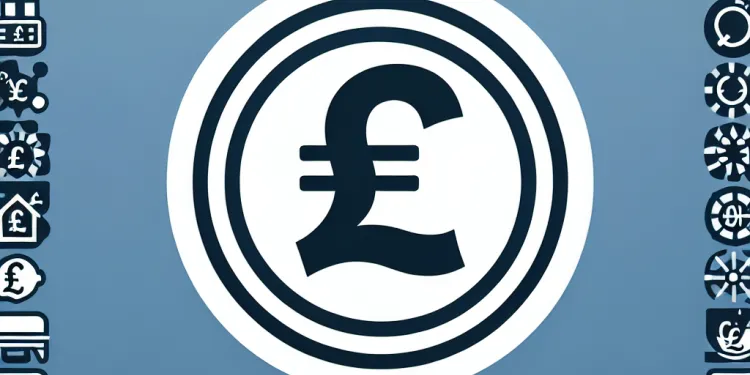
What is Universal Credit in the UK?
Relevance: 55%
-
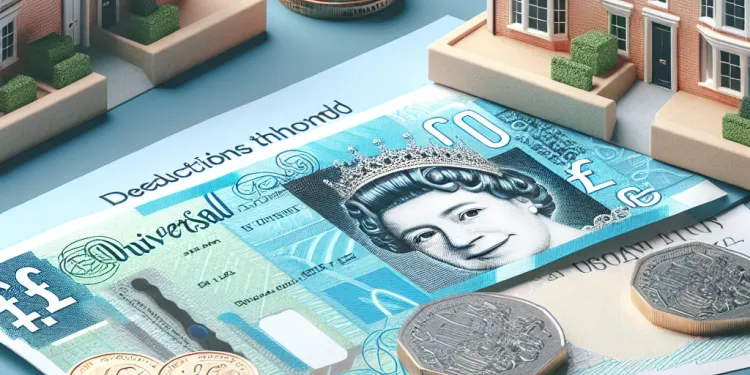
Are there any deductions from Universal Credit?
Relevance: 51%
-

How is the Universal Credit amount calculated?
Relevance: 47%
-

What work-related requirements exist for Universal Credit claimants?
Relevance: 47%
-

Applying For Universal Credit
Relevance: 47%
-

How is Universal Credit paid?
Relevance: 46%
-
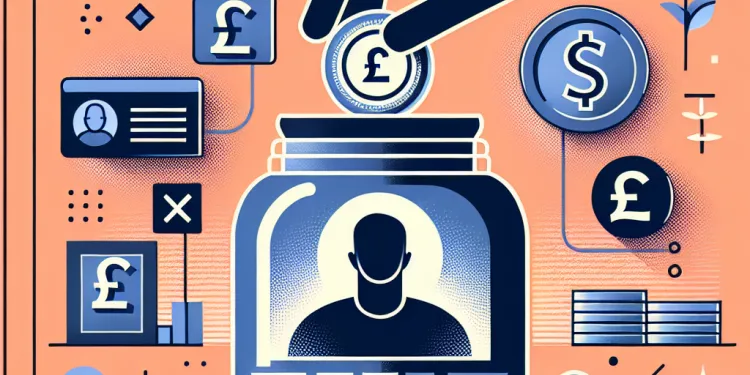
Can I apply for Universal Credit if I am self-employed?
Relevance: 44%
-
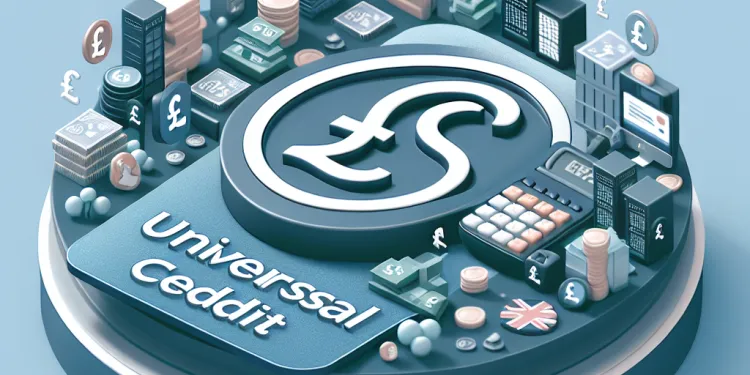
How can I apply for Universal Credit?
Relevance: 44%
-
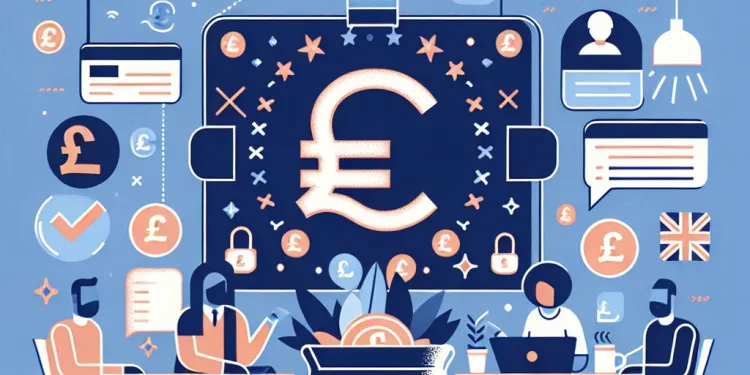
Who can apply for Universal Credit?
Relevance: 43%
-
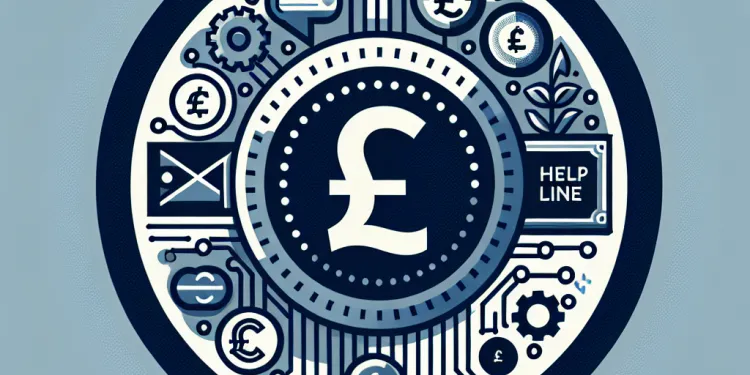
What is the Universal Credit helpline number?
Relevance: 42%
-
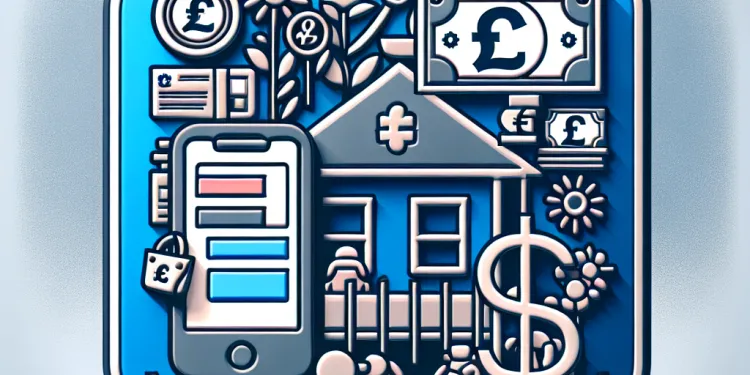
Does Universal Credit cover childcare costs?
Relevance: 40%
-
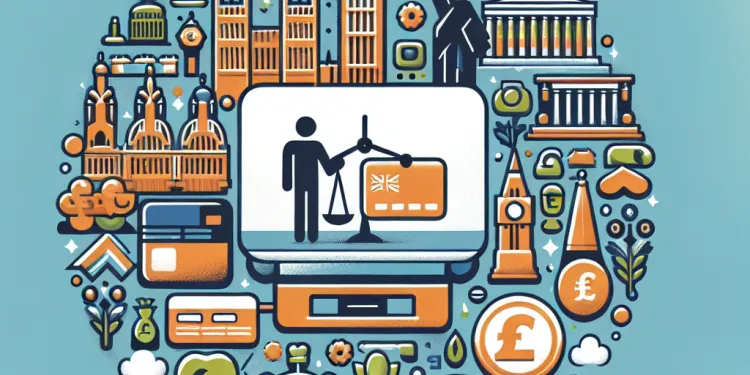
What if I disagree with a Universal Credit decision?
Relevance: 39%
-
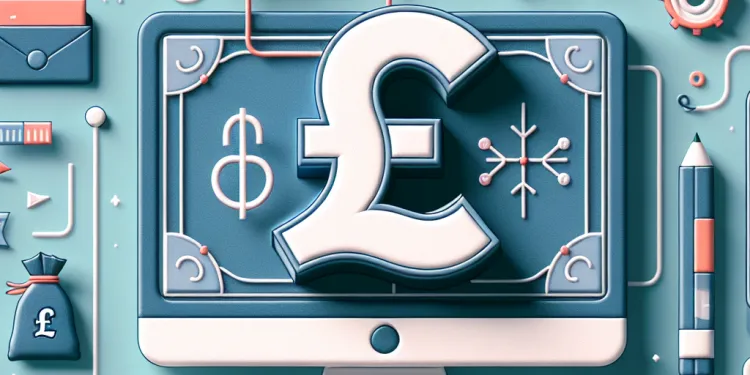
Can you receive Universal Credit if you are in full-time education?
Relevance: 38%
-
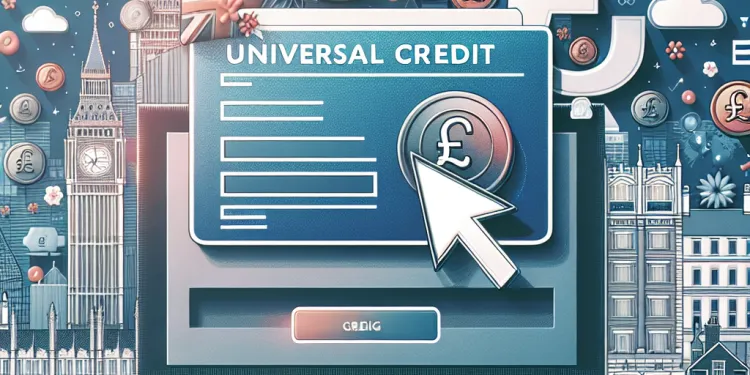
What documents are required to apply for Universal Credit?
Relevance: 38%
-

Government Announces Increase in Universal Credit Payments Ahead of Winter
Relevance: 37%
-

Universal Credit Adjustments: What Recent Changes Mean for Claimants
Relevance: 37%
-

How long does it take to receive the first Universal Credit payment?
Relevance: 37%
-

What is an advance payment of Universal Credit?
Relevance: 32%
-
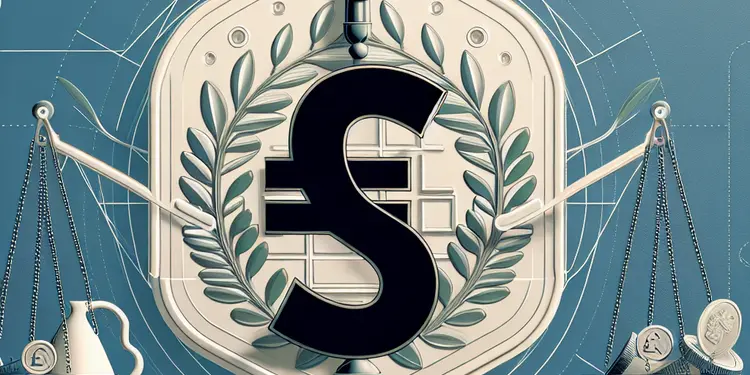
High Court Ruling on Universal Credit 'Unlawful' Cap Pending
Relevance: 27%
-

Are there changes expected for tax credits in April 2026?
Relevance: 23%
-
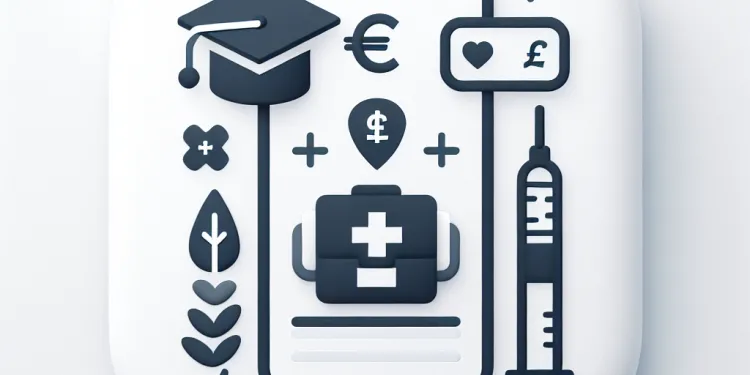
Can first aid courses be applied for college credit?
Relevance: 23%
-
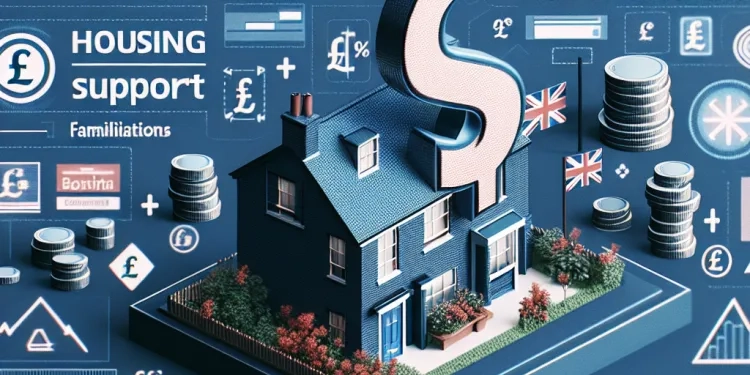
Is housing support included in Universal Credit?
Relevance: 22%
-

Credit Union tour of Wales
Relevance: 22%
-
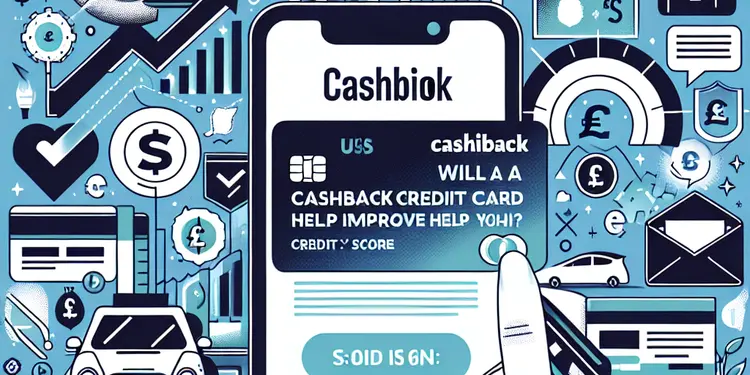
Will a cashback credit card help improve my credit score?
Relevance: 22%
-
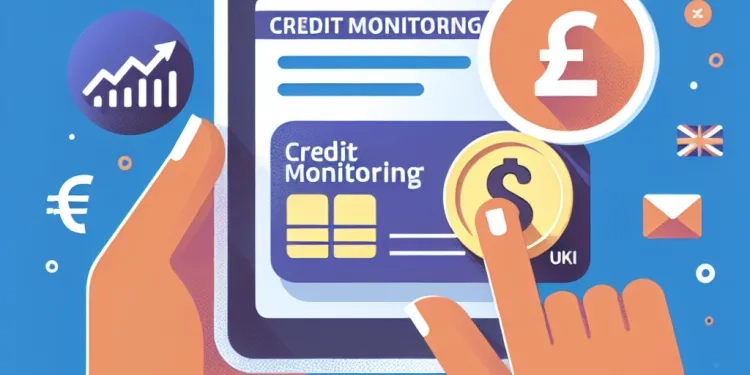
What is credit monitoring?
Relevance: 21%
-

Does filing for bankruptcy stop an eviction?
Relevance: 21%
-

What happens if I stop taking weight loss jabs?
Relevance: 21%
-
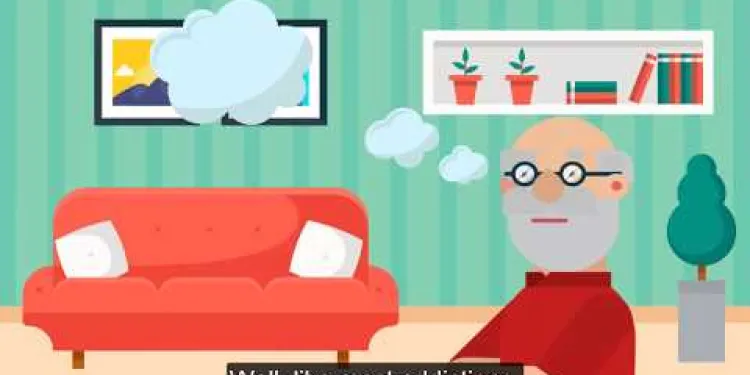
NHS Stop Smoking Subtitled version
Relevance: 21%
-
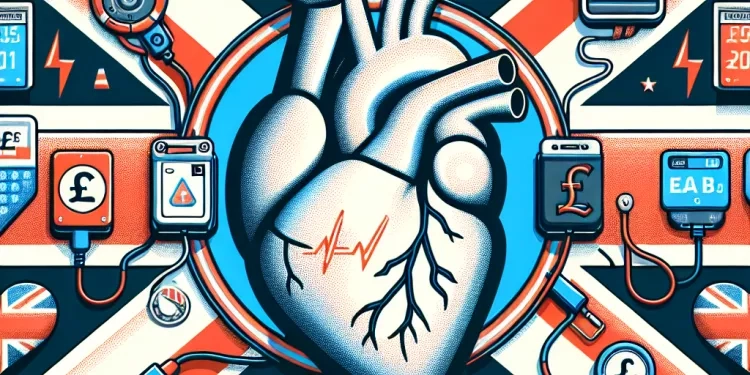
Can a defibrillator restart a stopped heart?
Relevance: 21%
-

What happens if I stop taking Ozempic or Wegovy?
Relevance: 21%
-
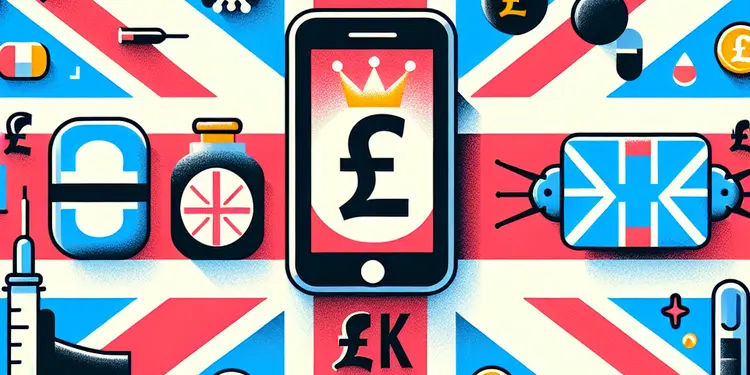
If I stop Ozempic or Wegovy jabs, will I regain weight?
Relevance: 20%
-
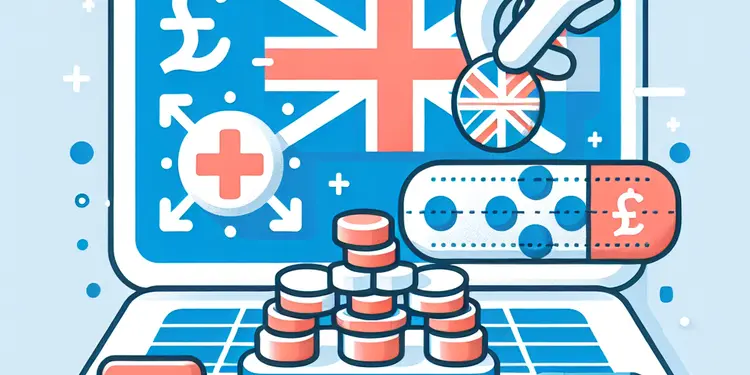
Should I stop taking antibiotics if I feel better?
Relevance: 20%
-
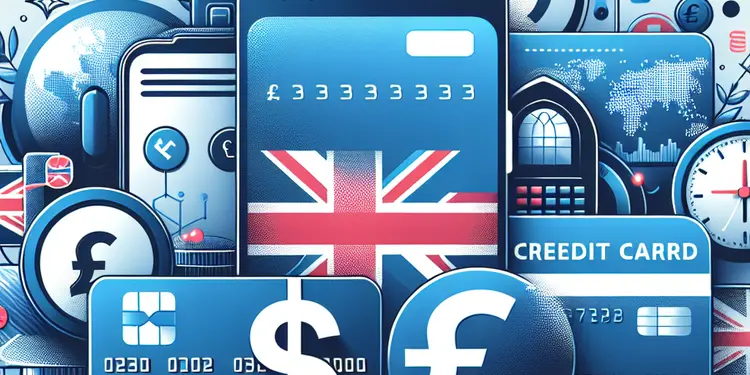
What is credit card fraud?
Relevance: 20%
-
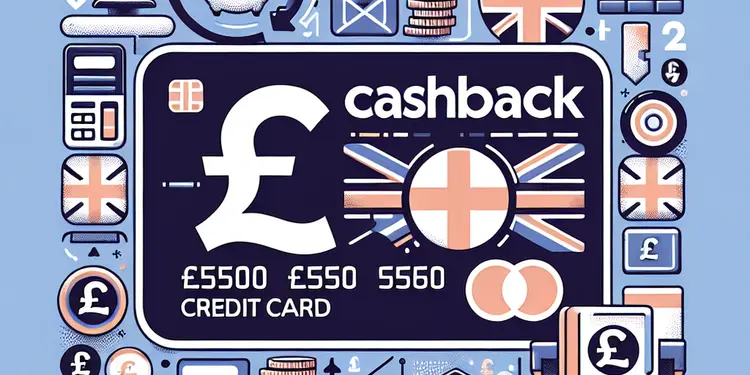
What is a cashback credit card?
Relevance: 20%
-
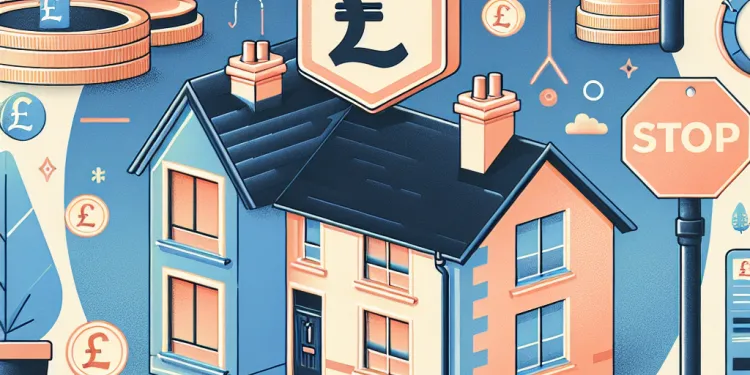
Can I stop an eviction if I catch up on rent payments?
Relevance: 20%
-

Is a cashback credit card right for me?
Relevance: 20%
-
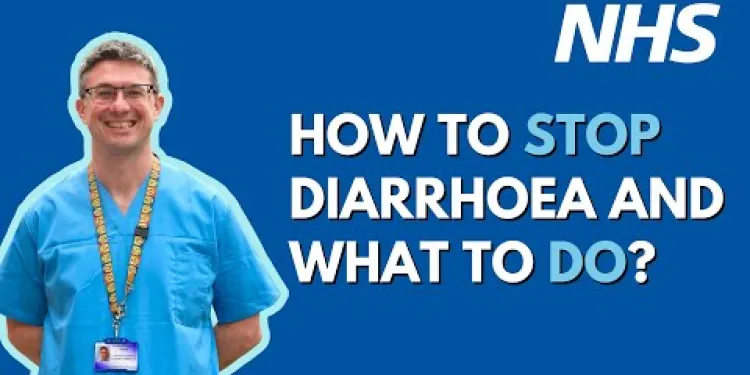
Diarrhoea - How to stop it? | UHL NHS Trust
Relevance: 20%
-

How does Universal Credit affect other benefits?
Relevance: 19%
-
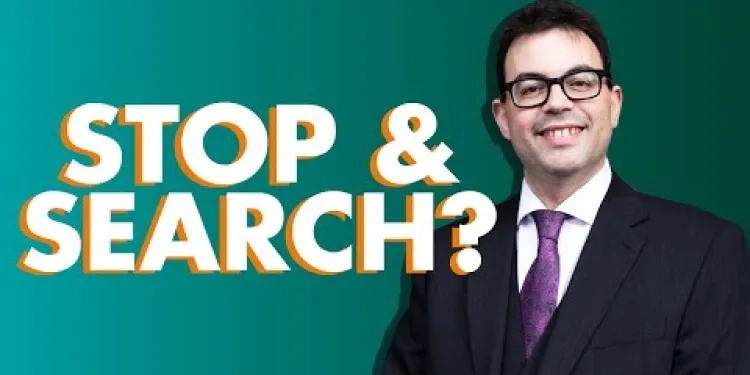
What are my rights if the police want to stop and search me? [Criminal law]
Relevance: 19%
Understanding Universal Credit Sanctions
Universal Credit is a welfare benefit in the United Kingdom designed to help those who are unemployed or on a low income with living costs. Administered by the Department for Work and Pensions (DWP), it aims to simplify the benefits system by combining six separate benefits into one single monthly payment. However, claimants must adhere to specific requirements to receive Universal Credit, which can be sanctioned or stopped if these requirements are not met.
What Are Universal Credit Sanctions?
Sanctions are reductions or suspensions of Universal Credit payments. These can occur if claimants fail to comply with the conditions agreed upon in their 'Claimant Commitment'—a contract-like document outlining what a recipient must do to receive payments. Conditions can include job searching, attending work-focused interviews, or increasing income. The DWP imposes sanctions to encourage claimants to fulfil these obligations, believing that this will support them in finding work.
Types of Sanctions
There are four levels of Universal Credit sanctions: low, medium, high, and the 'higher level'. Low-level sanctions apply to failures such as missing an appointment with the work coach. Medium-level sanctions might be for failing to take reasonable steps to find or prepare for work. High-level sanctions are for more serious breaches, such as leaving a job voluntarily without good reason. The severity and length of the sanction increase with the level of the breach, starting from a few days to as long as six months.
Can Universal Credit Be Stopped?
Yes, Universal Credit can be stopped or paused entirely in certain situations. This can happen if there is a substantial change in a claimant's circumstances. These might include moving to another country, starting full-time education, or receiving other benefits that replace Universal Credit. Additionally, if someone stops meeting the basic eligibility criteria, such as the right to reside and habitual residence conditions, their entire claim might be closed by the DWP.
Appealing Against a Sanction
If a Universal Credit recipient believes a sanction is unjustified, they have the right to appeal. Initially, they should request a 'mandatory reconsideration,' asking the DWP to review and potentially change their decision. If unsatisfied with this reconsideration, claimants can take their case to an independent tribunal. Having evidence to support their reasons for non-compliance is crucial in successfully appealing against a sanction.
How to Avoid Sanctions
Staying informed about one's obligations detailed in the Claimant Commitment is key to avoiding sanctions. Regular communication with a work coach, attending appointments, actively seeking employment, and immediately reporting any change in circumstances can help ensure that Universal Credit payments proceed without interruptions. Seeking guidance from support services or local councils can also offer additional help in understanding and adhering to the requirements.
Conclusion
While Universal Credit provides essential financial assistance to millions in the UK, it comes with strict compliance requirements. Understanding the sanction process, knowing your rights, and fulfilling the necessary commitments are crucial steps in maintaining your benefits. Always seek advice if you face a sanction, and use available support to navigate the appeals process effectively.
Understanding Universal Credit Sanctions
Universal Credit is money from the government in the United Kingdom to help people who don't have a job or have a low income. This money helps with living expenses. The Department for Work and Pensions (DWP) is in charge of giving out this money. They made it simpler by putting six different payments into one monthly payment. But, you must follow some rules to get Universal Credit. If you don't, your payment can be reduced or stopped.
What Are Universal Credit Sanctions?
Sanctions are when your Universal Credit money is cut down or stopped. This happens if you don't do what you agreed to in a special agreement called a 'Claimant Commitment.' This agreement says what you must do to get the money. For example, you might need to look for a job, go to job interviews, or try to earn more money. The DWP wants people to do these things to help them find work.
Types of Sanctions
There are four kinds of Universal Credit sanctions: low, medium, high, and higher level. Low-level sanctions happen if you miss a meeting with your work coach. Medium-level sanctions happen if you don't try hard enough to find a job. High-level sanctions happen if you leave a job without a good reason. The more serious the rule you break, the longer the sanction. It can be from a few days to six months.
Can Universal Credit Be Stopped?
Yes, Universal Credit can stop or be paused. This can happen if something big changes in your life. For example, if you move to a different country, start school full-time, or get other benefits instead of Universal Credit. If you no longer meet the basic rules, like living in the UK, your claim might be closed by the DWP.
Appealing Against a Sanction
If you think a sanction is wrong, you can ask for it to be looked at again. First, you ask for a 'mandatory reconsideration.' This means you want the DWP to think about their decision again. If you still think it's wrong after that, you can go to an independent tribunal. It's important to have evidence to explain why you couldn't do what was agreed.
How to Avoid Sanctions
To avoid sanctions, know what you have agreed to in the Claimant Commitment. Talk to your work coach often, go to meetings, look for jobs, and tell them if something important changes in your life. You can also ask for help from support services or your local council to understand what you need to do.
Conclusion
Universal Credit helps many people in the UK with money, but you must follow the rules. Know how the sanctions work, know your rights, and meet your commitments to keep getting your money. If you get a sanction, ask for advice and use support to help you with the process.
Frequently Asked Questions
What are the reasons Universal Credit can be stopped?
Universal Credit can be stopped if you no longer meet the eligibility requirements, fail to provide required information, or have a change in circumstances that disqualifies you.
Can Universal Credit be stopped if I start earning too much?
Yes, if your earnings rise above a certain threshold, your Universal Credit payments might be reduced or stopped.
What happens if I miss an appointment with the Jobcentre?
Missing a Jobcentre appointment can lead to a sanction on your Universal Credit, potentially reducing your payment.
How can I avoid getting sanctioned on Universal Credit?
To avoid sanctions, comply with the terms of your Claimant Commitment, attend all appointments, and report changes in your circumstances promptly.
What should I do if my Universal Credit is stopped?
If your Universal Credit is stopped, contact your work coach or the Universal Credit helpline to understand the reason and see what actions you can take.
Can I appeal a decision to stop or sanction my Universal Credit?
Yes, you can challenge the decision by requesting a mandatory reconsideration and, if necessary, take it to a tribunal.
Are there different levels of sanctions on Universal Credit?
Yes, there are different levels of sanctions ranging from low to high which depend on the nature and frequency of your failures to comply.
How long can a Universal Credit sanction last?
The length of a sanction can vary from 7 days to up to 3 years depending on the level and repeated compliance failures.
Can I receive hardship payments if my Universal Credit is sanctioned?
Yes, you may be eligible for hardship payments if you meet certain conditions and your Universal Credit is reduced due to a sanction.
Will I be informed before my Universal Credit is sanctioned?
You should receive a notification explaining the reason for the sanction and the potential reduction in your payment amount.
Can my Universal Credit be stopped if I don’t report a change in my circumstances?
Yes, failing to report changes in circumstances can lead to your Universal Credit being stopped or suspended.
What is a Claimant Commitment in Universal Credit?
A Claimant Commitment is an agreement between you and the DWP detailing what you need to do to receive Universal Credit.
What type of changes must be reported for Universal Credit?
Changes such as employment status, income, address, household composition, and health conditions must be reported.
If my Universal Credit is stopped, can I reapply?
Yes, you can reapply for Universal Credit if your circumstances change and you become eligible again.
What is the process to challenge a Universal Credit sanction?
To challenge a sanction, request a mandatory reconsideration and if unsatisfied, appeal to a tribunal.
Are there support services available for those sanctioned from Universal Credit?
Yes, support services and advice can be sought from Citizens Advice or similar organizations.
What role does my work coach play in avoiding Universal Credit sanctions?
Your work coach helps you understand your responsibilities and supports you in meeting the requirements to avoid sanctions.
Can illness affect my Universal Credit payments?
Illness can affect your ability to fulfill your Claimant Commitment, so it’s important to report this to potentially adjust your requirements.
How does volunteering affect my Universal Credit?
Volunteering can generally be part of your activity requirement, but you need to ensure it doesn’t conflict with any job-seeking commitments.
What should I do if I face unforeseen circumstances affecting my Universal Credit commitments?
Communicate with your work coach immediately to discuss and potentially revise your Claimant Commitment.
Why can Universal Credit stop?
Universal Credit is money from the government to help you. You can stop getting this money if:
- You don't meet the rules to get it anymore.
- You don't give the information they ask for.
- Something in your life changes that means you can't get it now.
It's helpful to use tools like reminders to keep track of important dates and information. You can also ask someone you trust to help you understand letters or information about your Universal Credit.
Will I lose Universal Credit if I earn more money?
If you start to earn more money from work, your Universal Credit could be less or stop. This is because you have more money to help you.
Don't worry! There are ways to get help and understand what will happen:
- Ask someone you trust to explain it to you.
- Use online calculators to see how your money changes.
- Talk to a support worker or job centre for advice.
If you start earning more money, you might get less Universal Credit. Sometimes, it might even stop.
What if I forget my meeting at the Jobcentre?
If you miss a meeting at the Jobcentre, you might get less money from your Universal Credit.
How can I stop my Universal Credit money from being cut?
To avoid getting into trouble, you should do what you agreed to in your Claimant Commitment. Go to all your meetings and tell them if anything in your life changes right away.
What should I do if my Universal Credit stops?
If your Universal Credit stops, don't worry. Here are some steps you can take:
- Check your online account to see why it stopped.
- Contact the Universal Credit helpline for help.
- Ask a friend, family member, or support worker for help if you need it.
- You can write down questions you want to ask before you call.
Remember, you can always ask for help if you need it.
Support tools:
- Use a calendar to track important dates.
- Use a notebook to write down important information.
If your Universal Credit stops, talk to your work coach. You can also call the Universal Credit helpline. They can tell you why it stopped and what you can do.
Can I ask for a change if my Universal Credit is stopped or reduced?
Yes, you can ask them to look at the decision again. This is called a "mandatory reconsideration." If you still think the decision is wrong after that, you can ask a special group of people, called a tribunal, to look at it.
Are there different types of punishments for Universal Credit?
Yes, there are different types of punishments. If you don’t do what you need to, your money might be less for a while. Here’s how it works:
- Low level: You lose some money. It will stop when you fix what you missed.
- Medium level: You lose some money for longer. Maybe one or two months.
- High level: You lose more money for a longer time, maybe three months or more.
You can ask for help if you find it hard to understand. You can also ask someone you trust to read with you. Using a dictionary might help with hard words. If you have a phone or a computer, you can use apps that speak the words for you.
Yes, there are different kinds of punishments. They can be small or big. It depends on what you did wrong and how many times you did not follow the rules.
How long can a Universal Credit penalty last?
A penalty means you get less money for a little while. This can happen if rules are not followed.
The time can be:
- Low level: This can last 7, 14, or 28 days.
- Medium level: This can last 28 days or 91 days.
- High level: This can last 91 days or up to 1 year.
If you find it hard to understand, you can:
- Ask someone for help.
- Use online tools that read text aloud.
- Use pictures to understand better.
The time you can get a penalty can be from 7 days to 3 years. This depends on how serious it is and if you keep making mistakes.
Can I get extra money if my Universal Credit stops?
If your Universal Credit is stopped, you might still be able to get some money. This money is called a "hardship payment."
Here’s how you can try to get it:
- Talk to your job coach at the Jobcentre.
- They can help you fill out a form to ask for the payment.
- You need to show you really need the money for important things like food and bills.
Helpful tools:
- You can bring a friend or family member to help you talk to the job coach.
- Write down all the things you spend money on each week to show your needs.
If your Universal Credit money goes down because of a penalty, you might be able to get extra help called hardship payments.
Will I know before my Universal Credit is stopped?
If your Universal Credit might stop, you will be told before it happens.
To help you understand, you can use:
- A friend or helper to explain it.
- Phone the Universal Credit helpline for questions.
You will get a message that tells you why the payment is less. It will also tell you how much money you might lose.
Can my Universal Credit payments stop if I don't tell them about changes in my life?
If you don't tell them about changes in your life, your Universal Credit money might stop or pause.
What is a Claimant Commitment in Universal Credit?
The Claimant Commitment is like a promise. It is what you agree to do to get Universal Credit money.
This promise says things you must do. For example, looking for a job or going to meetings.
It is important to keep the promise to keep getting the money.
It can be helpful to talk about the promise with someone who can help, like a support worker.
Using a calendar or reminders can be useful to remember important things to do for the promise.
A Claimant Commitment is a promise between you and the DWP. It says what you must do to get Universal Credit.
What changes do I need to tell Universal Credit about?
You must tell about the big changes in your life. These changes can be:
- Your job status - like if you start or stop a job.
- Your money - if you get more or less money.
- Your address - if you move to a new home.
- Your family - if someone new lives with you or someone leaves.
- Your health - if you get sick or feel better.
If you need help, you can use tools like a talking app or ask someone you trust to help you understand.
What can I do if my Universal Credit stops?
If your Universal Credit stops, you can apply again.
Here is what you can do:
- Check why it stopped.
- Use a computer, tablet, or phone to reapply.
- Ask for help if you need it.
Helpful ideas:
- Talk to someone at the Job Centre.
- Ask a friend or family member to help.
- Look for online guides or videos.
Yes, you can apply for Universal Credit again if things change in your life and you can get it.
How do I ask for a Universal Credit sanction to be looked at again?
If you get a penalty, you can ask for it to be looked at again. This is called asking for a "mandatory reconsideration". If you still think it's not fair, you can ask a group of people, called a "tribunal", to look at it.
Can people get help if their Universal Credit is stopped?
Yes, there is help for people whose money is stopped. You can talk to someone for advice or use online tools. Here is what you can do:
- Call a helpline for advice.
- Ask a support worker or a friend for help.
- Look online for more information about getting help.
It is important to get help if you need it.
Yes, you can get help and advice from a place called Citizens Advice or other groups like it.
How can my work coach help me not get Universal Credit sanctions?
Your work coach is there to help you. They explain what you need to do and support you, so you don't get into trouble. If you're worried, ask them for help. You can also use pictures or a friend to understand better.
Can being sick change my Universal Credit money?
When you are sick, it might be hard to do what you agreed to do in your Claimant Commitment. Tell someone about being sick, so they can help you change what you need to do.
What happens to my Universal Credit if I do volunteer work?
Helping out as a volunteer can usually count towards the activities you need to do. But make sure it doesn't get in the way of looking for a job.
What can I do if something unexpected happens with my Universal Credit?
Sometimes, things happen that we do not plan for. This can make it hard to keep up with your Universal Credit rules. If this happens to you, here is what you can do:
Tell your work coach: Talk to the person who helps you with Universal Credit. Let them know what is happening. They are there to help you.
Keep notes: Write down any important changes or things that happen. This can help explain your situation better.
Ask for help: You can get advice from friends or family. They might know about places that can help you too.
Use tools: There are apps and websites that can remind you about your Universal Credit tasks. These can be very helpful.
Remember, it is okay to ask for help when you need it.
Talk to your work coach right away. You can ask them to change your plan if you need to.
Useful Links
Have you found an error, or do you have a link or some information you would like to share? Please let us know using the form below.
-->
This website offers general information and is not a substitute for professional advice.
Always seek guidance from qualified professionals.
If you have any medical concerns or need urgent help, contact a healthcare professional or emergency services immediately.
Some of this content was generated with AI assistance. We’ve done our best to keep it accurate, helpful, and human-friendly.
- Ergsy carfully checks the information in the videos we provide here.
- Videos shown by Youtube after a video has completed, have NOT been reviewed by ERGSY.
- To view, click the arrow in centre of video.
- Most of the videos you find here will have subtitles and/or closed captions available.
- You may need to turn these on, and choose your preferred language.
- Go to the video you'd like to watch.
- If closed captions (CC) are available, settings will be visible on the bottom right of the video player.
- To turn on Captions, click settings .
- To turn off Captions, click settings again.
More Items From Ergsy search
-

Can Universal Credit be stopped or sanctioned?
Relevance: 100%
-

What is Universal Credit in the UK?
Relevance: 55%
-

Are there any deductions from Universal Credit?
Relevance: 51%
-

How is the Universal Credit amount calculated?
Relevance: 47%
-

What work-related requirements exist for Universal Credit claimants?
Relevance: 47%
-

Applying For Universal Credit
Relevance: 47%
-

How is Universal Credit paid?
Relevance: 46%
-

Can I apply for Universal Credit if I am self-employed?
Relevance: 44%
-

How can I apply for Universal Credit?
Relevance: 44%
-

Who can apply for Universal Credit?
Relevance: 43%
-

What is the Universal Credit helpline number?
Relevance: 42%
-

Does Universal Credit cover childcare costs?
Relevance: 40%
-

What if I disagree with a Universal Credit decision?
Relevance: 39%
-

Can you receive Universal Credit if you are in full-time education?
Relevance: 38%
-

What documents are required to apply for Universal Credit?
Relevance: 38%
-

Government Announces Increase in Universal Credit Payments Ahead of Winter
Relevance: 37%
-

Universal Credit Adjustments: What Recent Changes Mean for Claimants
Relevance: 37%
-

How long does it take to receive the first Universal Credit payment?
Relevance: 37%
-

What is an advance payment of Universal Credit?
Relevance: 32%
-

High Court Ruling on Universal Credit 'Unlawful' Cap Pending
Relevance: 27%
-

Are there changes expected for tax credits in April 2026?
Relevance: 23%
-

Can first aid courses be applied for college credit?
Relevance: 23%
-

Is housing support included in Universal Credit?
Relevance: 22%
-

Credit Union tour of Wales
Relevance: 22%
-

Will a cashback credit card help improve my credit score?
Relevance: 22%
-

What is credit monitoring?
Relevance: 21%
-

Does filing for bankruptcy stop an eviction?
Relevance: 21%
-

What happens if I stop taking weight loss jabs?
Relevance: 21%
-

NHS Stop Smoking Subtitled version
Relevance: 21%
-

Can a defibrillator restart a stopped heart?
Relevance: 21%
-

What happens if I stop taking Ozempic or Wegovy?
Relevance: 21%
-

If I stop Ozempic or Wegovy jabs, will I regain weight?
Relevance: 20%
-

Should I stop taking antibiotics if I feel better?
Relevance: 20%
-

What is credit card fraud?
Relevance: 20%
-

What is a cashback credit card?
Relevance: 20%
-

Can I stop an eviction if I catch up on rent payments?
Relevance: 20%
-

Is a cashback credit card right for me?
Relevance: 20%
-

Diarrhoea - How to stop it? | UHL NHS Trust
Relevance: 20%
-

How does Universal Credit affect other benefits?
Relevance: 19%
-

What are my rights if the police want to stop and search me? [Criminal law]
Relevance: 19%


